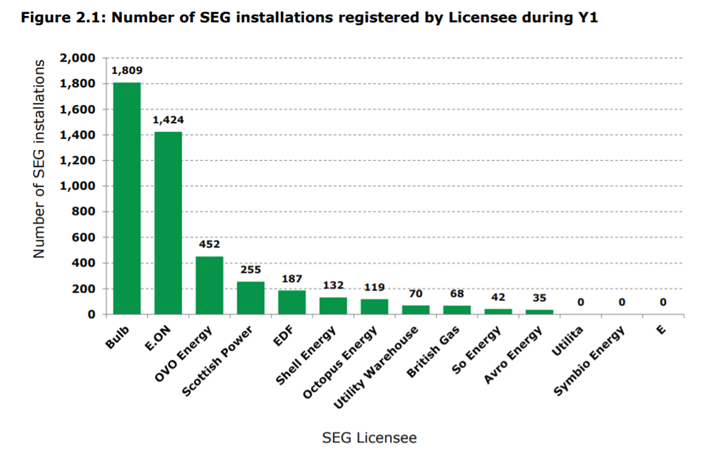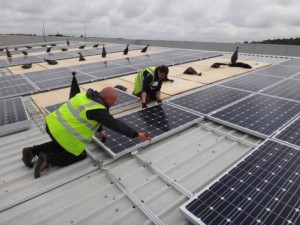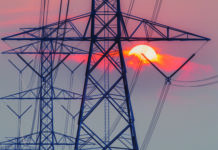The first fifteen months of Britain’s Smart Export Guarantee (SEG) for microgeneration projects saw solar PV take an overwhelming 99.8% share of projects registered, figures out today reveal.
Ofgem figures reveal that less than £120,000 in total was paid out over the period in SEG reimbursements to 4,593 qualifying small generation points, overwhelmingly homes. The single non-solar installation was a CHP plant.
The SEG has been Conservative governments’ commercially determined replacement for the Export Tariff, a legally mandated compensation for sale of clean power back to the grid, and allied to the now defunct Feed-in Tariff, which rewarded generation.
Introduced in January 2020, the SEG replaced the Export Tariff, after the related FiT closed to new applicants in March 2019.
Differing SEG rates offered to minnow generators are set by licenced power suppliers, either voluntarily, or as a condition of their supply licence.
The reimbursement scheme was designed as a market-determined solution, with microgenerators encouraged to shop around for the best deal.
In practice, however, critics of the SEG argue that information asymmetries between homeowners and big energy retailers, plus relatively high transaction costs to the former, have led to only miniscule differences in SEG rates.
Bulb and E.ON together garnered a dominant 70% of the UK’s SEG-compliant installations. Ofgem unsurprisingly reports that the duo offered the highest rates of reimbursement during the SEG’s first year of operation.

Twenty-one tariffs were offered by retailers throughout the year; six were withdrawn before its end. With effect from November 2020, EDF cut its Export + Earn SEG rate from 3.5p/kWh to 1.5p/kWh.
The previous legally mandated Export Tariff under the FiT was launched at 5p/kWh. Around 700,000 small roofs continue to qualify for it.
Only a negligible 1.05% of the 4,593 microgeneration PV arrays or other plant in the first year of SEG operation was rated at over 10 kWp in capacity. Nominally, SEGs are available for installations rated up to 400 kWp.
Ofgem notes that some suppliers failed to comply with the terms of their own SEGs. One had no mechanism to settle exports made on a half-hourly basis. It consulted with the regulator and resolved its breach.




